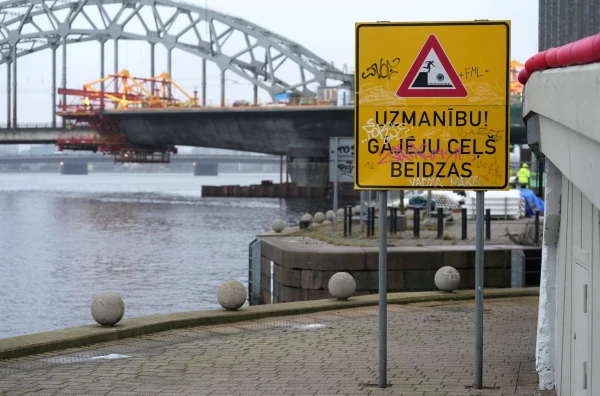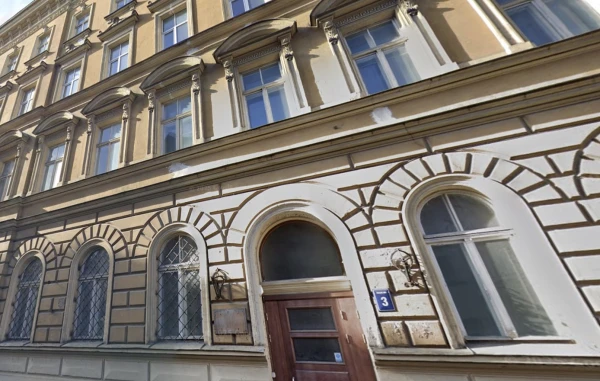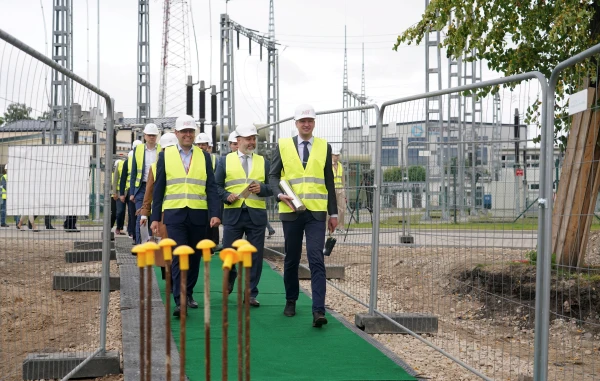
The Baltic countries need to agree on a fixed amount for financing the joint venture “RB Rail”, said in an interview with LETA the chairman of the company’s board, Marko Kivila, and financial director Ojar Daugavietis, LETA reports.
“RB Rail” proposes that the Baltic countries agree on a fixed amount for financing the joint venture
“We can certainly try to survive, but...” : Rail Baltica faces the risk of losing money
Kivila emphasized that the budget of the joint venture has essentially not changed this year – with the start of construction of the main route of “Rail Baltica”, European Union (EU) funding is primarily directed towards construction works, while the Baltic countries increasingly have to cover the expenses for project management and coordination.
The head of the enterprise noted that this year “RB Rail” has done everything possible to reduce the budget – in particular, the company stopped hiring new employees and did not hire replacements for departed workers. Additionally, a significant portion of the work has been postponed to 2026 in hopes that the situation will improve.
“At the moment, there is a shortfall of about 900,000 euros that the Latvian government will need to invest in 2025. We hope that in cooperation with the Latvian Ministry of Transport, our needs will be included in the real budget for 2026 this time, as this was the reason for the entire past dilemma – the needs turned out to be much greater than could be covered at the end of the year through the redistribution of unused funds,” Kivila noted.
For his part, Daugavietis emphasized that to continue the activities of “RB Rail” in 2026, a new financial agreement must be concluded with all three countries, as the current one expires this year. He added that the new agreement must clearly specify how and for what purposes the funds will be allocated.
“For example, we need to agree that the countries will co-finance the activities of the joint venture, as stipulated in the grant agreement with the European Commission (EC). These technical issues need to be agreed upon by the end of the year so that we can continue to operate,” added the financial director of “RB Rail.”
He noted that every year there is uncertainty regarding the budget of “RB Rail”: how much funding the company can receive and what the expenses will be. Therefore, “RB Rail” proposed that the countries determine a specific amount that all three parties can agree upon, which the enterprise will receive.
“For example, from each country ‘x’ million per year. That is, the states allocate a certain amount for the management of the ‘Rail Baltica’ project, and we live within these limits. Additionally, there may be co-financing from the Connecting Europe Facility (CEF) or projects concerning only one country. For instance, if we need a new research report on a certain section in Estonia, we cannot ask Latvia to pay for that report,” Daugavietis explained.
He also emphasized that it is necessary to agree on real financing for 2026. According to him, there are no problems regarding funding through CEF. “The problem concerns these non-mandatory expenses, that is, co-financing from the states – if it is not there, we can certainly try to survive, but (...)” said Daugavietis.
Kivila added that reducing the scope of project management will create a risk of misallocation of funds allocated for “Rail Baltica”, as no one will be fully monitoring the technical side of the railway line construction. This could lead to a simple loss of money.
“I don’t know why, but for some reason, when we try to convey all this to the government, it just doesn’t go through. We have provided the government with all this data, but nothing is moving – it’s like a sticker that doesn’t stick and just falls to the floor. I can’t even explain why this is happening,” Kivila commented.
According to information from the Baltic countries' joint venture “RB Rail”, the cost of the first phase of the “Rail Baltica” project in the Baltic countries could reach 14.3 billion euros, of which 5.5 billion euros is in Latvia. At the same time, savings of up to 500 million euros are possible through the optimization of technical solutions, as well as potential additional savings.
The total cost of the project, according to the cost-benefit analysis, could amount to 23.8 billion euros. In the previous cost-benefit analysis in 2017, it was assumed that the project would cost 5.8 billion euros.
The “Rail Baltica” project involves the construction of a European standard railway line from Tallinn to the border of Lithuania and Poland, in order to further connect the Baltic countries with other countries in Europe. In the Baltic countries, it is planned to build a new railway line of European gauge (1435 mm) with a length of 870 kilometers and a maximum train speed of 240 kilometers per hour.















Leave a comment